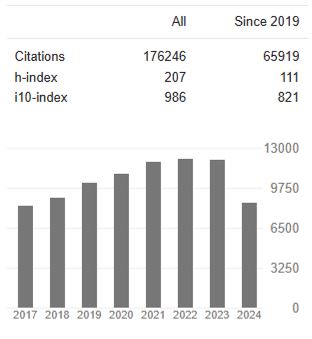Quality of Life of Breast Cancer Patients in Amhara Region, Ethiopia: a CrossSectional Study
Abstract
Tamrat Alem, Dabere Nigatu, Amsalu Birara, Tamene Fetene, Mastewal Giza
Background: Although breast cancer has a markedly higher incidence in developed countries, 50% of the new diagnosis and 70% of deaths occur in developing countries. There are limited data available on the quality of life among breast cancer patients in Ethiopia, notably in the Amhara region. This study aimed to assess the quality of life and associated factors among patients with breast cancer in the Amhara Region, Ethiopia, 2019.
Methods: Institutional based cross-sectional study was conducted from March 25 to July 7/2019 among 256 patients with breast cancer in the Amhara region. A systematic random sampling technique was used. Data were collected by using a standardized interviewer-administered Amharic version of the European Organization for research and treatment of cancer quality of life questionnaire core 30(EORTC QLQ C30) and breast cancer supplementary measure (QLQ-BR23). Data were analyzed by SPSS version 23. A binary logistic regression model was fitted to identify the associated factors. The odds ratio (OR) with 95% confidence interval (CI) was used to measure the strength of association.
Results: Sixty-eight point four percent (68.4%) of breast cancer patient’s QoL was poor. The mean score of quality of life was 70.6(standard deviation (SD) ±13.9; 95% CI: 69.0-72.4). All functional component scores were less than 75, from the symptom scale; diarrhea (11.6), constipation (17.5), and dyspnea (24.7) were less noticeable. Unmarried patients (AOR=2.59, 95% CI: 1.32-5.07), poor (AOR=2.39, 95%CI: 1.32-5.03), non housewife (AOR=3.25, 95% CI: 1.16-7.22), and complaints to dyspnea (AOR=3.48, 95% CI: 1.79-6.79), and insomnia (AOR=2.03, 95% CI: 1.05-3.91) were significantly associated with quality of life.
Conclusions: Health care professionals should give attention to unmarried, and non-housewife breast cancer patients, besides the treatment to improve the health of breast cancer patients.




